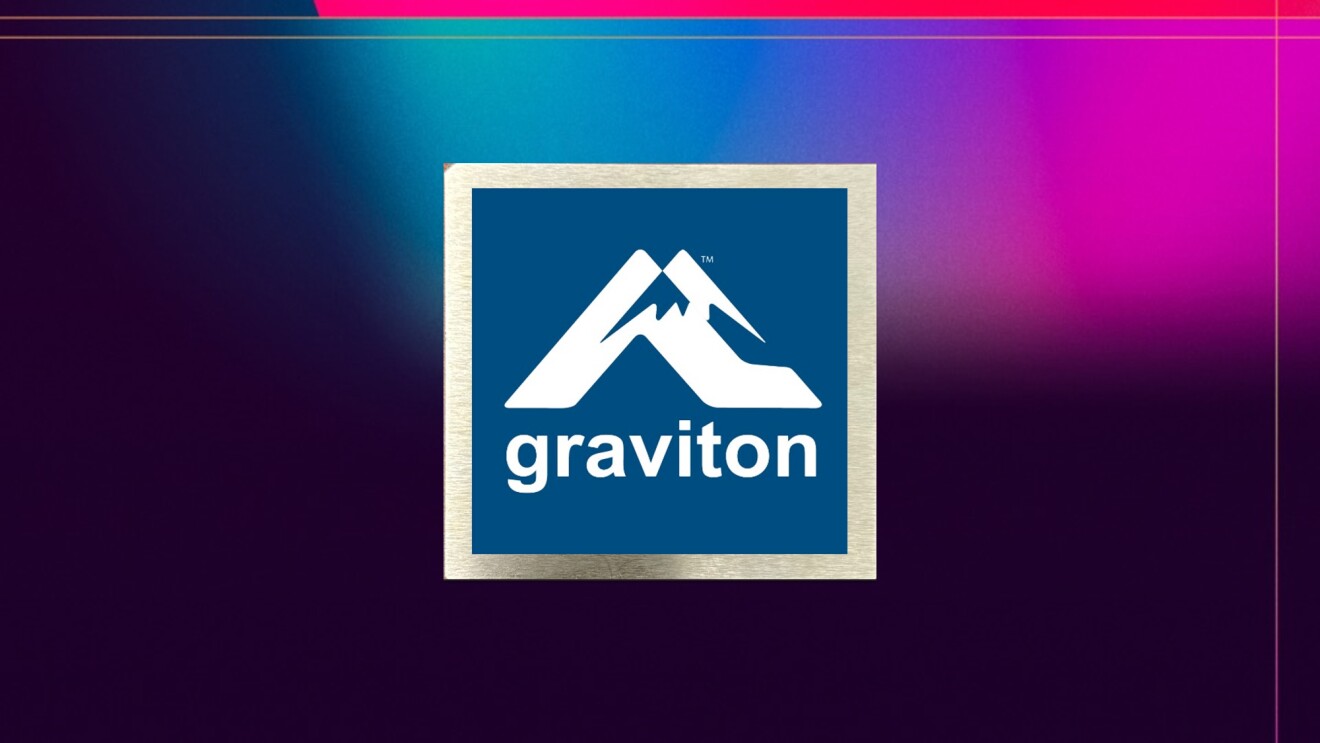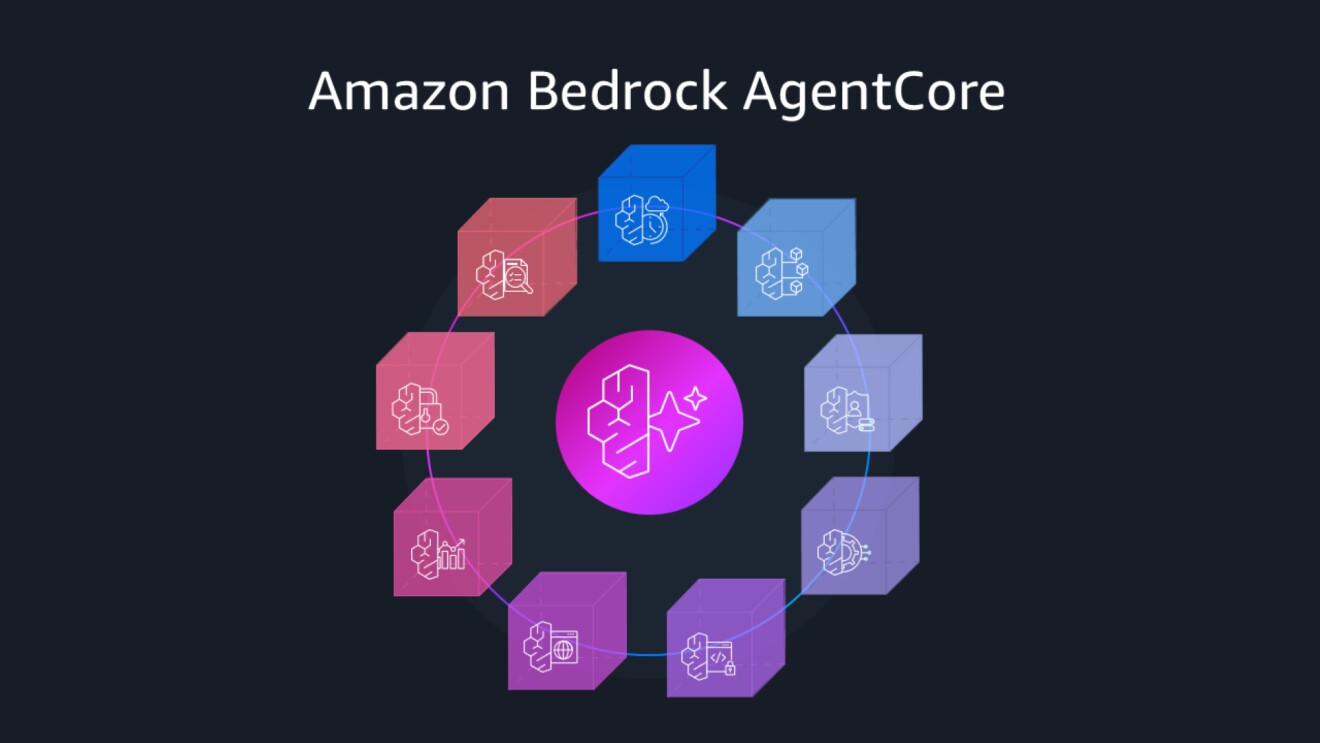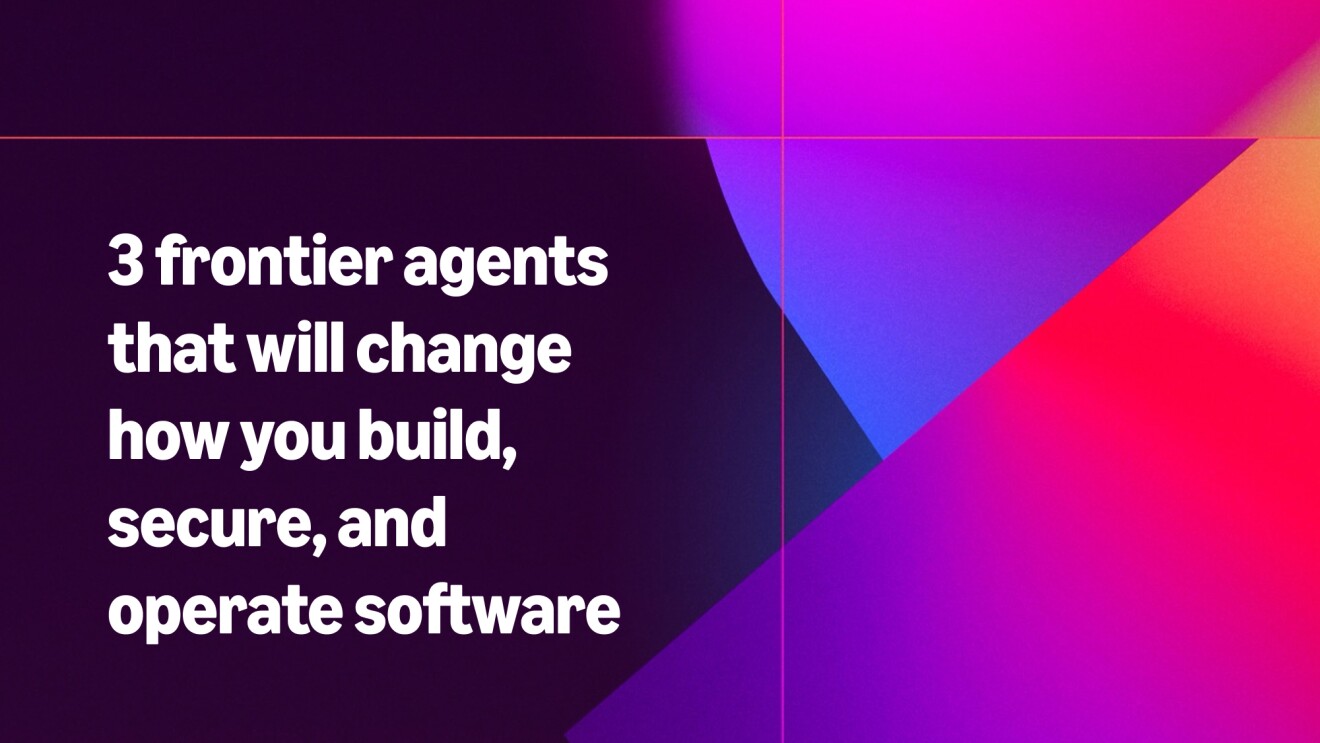Brittany Wilkins is a former police officer and deputy sheriff, the owner of two much-loved French bulldogs, an active member of the U.S. Air Force Reserves, and now, a data center technician in training. She is also the 1,000th person Amazon Web Services (AWS) has hired through the Amazon Technical Apprenticeship program, which helps military veterans and their spouses transition into tech careers, and has since expanded to help other groups.
The program, which started as a pilot in 2017, does not require candidates to have previous technical experience. Instead, it provides successful applicants, like Wilkins, with the opportunity to get paid while learning and training on the job, for up to 18 months, in a range of apprenticeship roles, including solutions architect, software development engineer, and cloud support associate.
The Amazon Technical Apprenticeship program is part of Amazon’s $1.2 billion commitment to provide free education and skills training opportunities to more than 300,000 U.S. Amazon employees by 2025. It focuses on the military community because, according to program lead Nick Curry, its members already exhibit so many of the Amazon Leadership Principles, such as Ownership, Bias for Action, and Insist on the Highest Standards.
“When you’ve had to live underwater in a tin can for more than 60 days straight, with a group of people from completely different walks of life, you find that common ground,” said Curry, formerly a member of the U.S. Navy himself, who joined Amazon in 2017.
“Whether you’re in a submarine, like I was, a trench, or the middle of the desert, you have to rely on each other. I really believe you learn these values in the military in a way you don’t anywhere else.”
We spoke with Wilkins, and two other program participants about their experience and the transformative impact it has had on their ambitions. If you or someone you know is interested in applying, visit the program website for more information.
Brittany Wilkins
Data center technician apprentice, Washington, D.C.
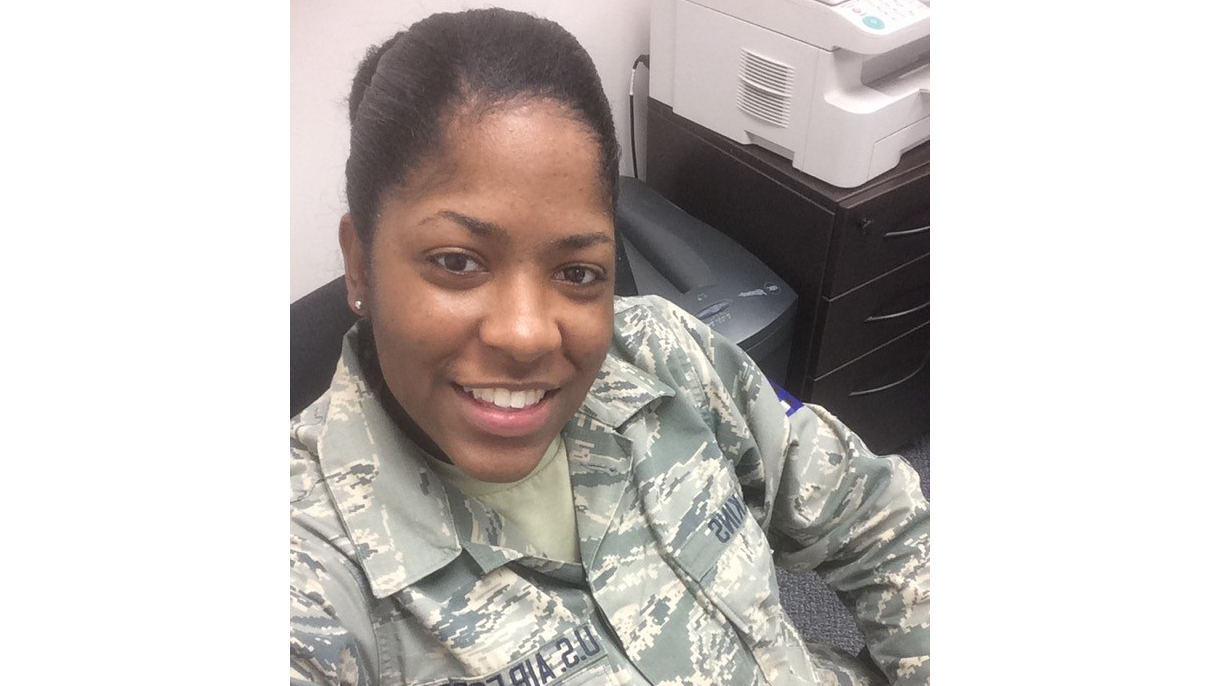
In 2021, Brittany Wilkins was scrolling through her LinkedIn feed one morning when she saw something that would change the course of her career entirely. “I came across a post advertising the AWS apprenticeship program,” she said. “What stood out to me was that you don’t need to have a background in IT, which I don’t. I thought, ‘I can't pass this up. It will give me everything I need to get my foot in the door.”
It was the final day for applications, so Wilkins had to act fast. She hurried home after work to submit her information before the deadline. At the time, she was serving as a law enforcement officer with the Defense Intelligence Agency, having already spent five years as a deputy sheriff and a police officer in Alexandria, Virginia.
Doing something that involved “serving her community” had been a major calling for Wilkins. Working as a police officer had given her self-confidence and the knowledge that she wasn’t afraid to take control of a situation. Over the years, she found herself pulled in another direction.
“I was seeing all these roles being advertised in technology, and I started thinking about how to switch over,” said Wilkins.
Her interest in technology wasn’t new. From an early age, Wilkins would watch her father, who works in IT, “doing things with computers.”
She just hadn’t thought of tech as a viable career option for herself or connected it with her passion for helping people.
“I had this image of working by myself, fixing things. I didn't really see the correlation with supporting clients that I see now,” said Wilkins.
Wilkins secured a place on the Data Center Technician path of the apprenticeship program. Currently, she’s working through an instructor-led training course. That means that while she’s studying and working, professional trainers guide her and her group through everything they need to know to achieve the certifications required to move to the next stage. The next stage is getting inside a real data center for 9–12 months for on-the-job training.
“It’s going to be a very hands-on role,” she said. “That’s what really attracts me. I want to learn all I can, especially about hardware, and maybe one day cross over into software. I think eventually I’d like to get into network engineering or cloud security. I like the idea of ensuring that people and their information stay safe.”
Courtney Sampson
Associate solutions architect, North Carolina

After an early career in banking, Courtney Sampson joined the U.S. Air Force as a way to get into tech, but he was placed into weather forecasting. While he found this somewhat technical, it was not the career he wanted to pursue. When his military contract ended, he decided to explore other routes into the tech world.
Sampson’s AWS apprenticeship was his first step into a technology career. “It was something like a fire hose of information coming in,” he said. “The broadness and vastness of the technology landscape was just mind-blowing.”
Before starting the apprenticeship, Sampson said he had no idea what a solutions architect (SA) was and only limited knowledge of AWS technology. He quickly learned that AWS is an enormous enterprise and solutions architects have a broad role in which they touch a lot of technologies and work with a wide variety of customers.
Sampson completed his apprenticeship in 2020 and is now employed full time by AWS. His role is to guide different AWS customers on their cloud journey. He advises them on which services to use, helps them build applications, and shows them the “art of the possible” in the cloud.
Today, he continues to find his role interesting and challenging. In the immediate future, he wants to keep building his knowledge.
“I’m grateful that programs like this exist,” said Sampson. “I'm not sure how else I would have gotten into this career without this opportunity.
Most jobs require some sort of experience, but AWS really takes a risk by investing in people who don’t necessarily have the right technical background, but do have the approach to leadership that Amazon looks for. I really only made it this far because of AWS’s support.”
Emma Ng
Solutions architect apprentice, North Carolina
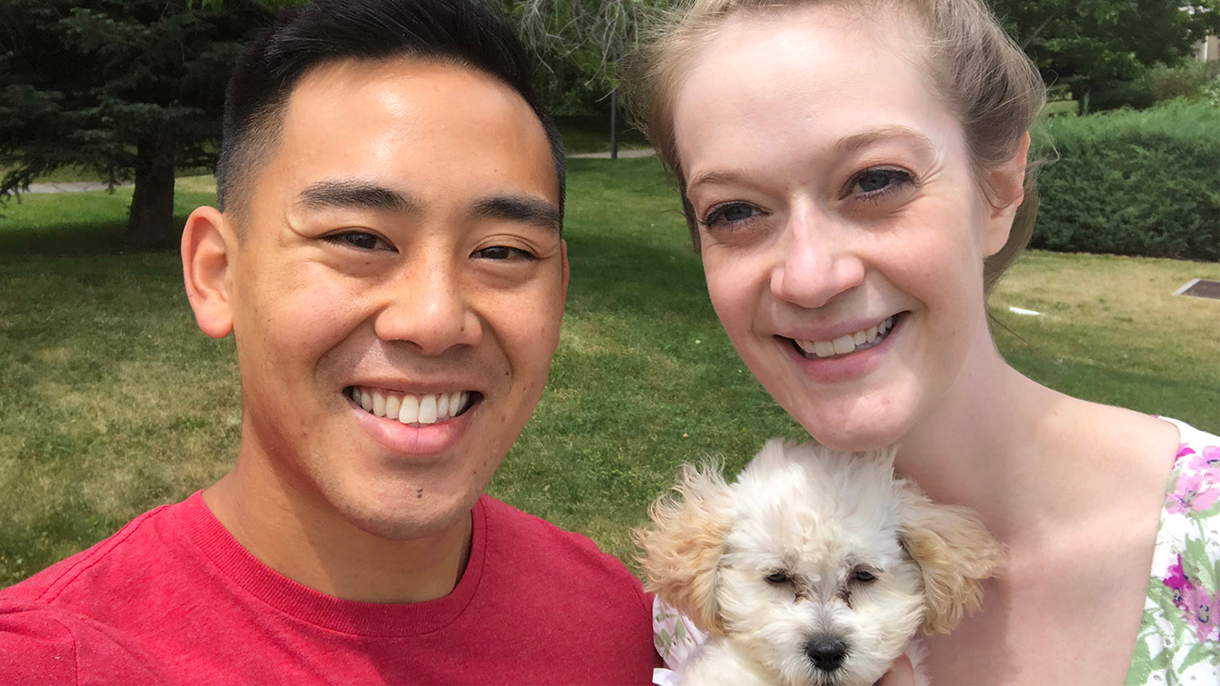
As a military spouse, Emma Ng moves frequently to support her husband’s career. Initially, she found pursuing her own career challenging. That changed in April 2021, when she joined the AWS apprenticeship program.
Currently living in North Carolina, Ng just graduated as a solutions architect. It’s a role that can be done from anywhere, meaning she can use her newfound expertise wherever she moves in the United States.
“A lot of times, military bases are in remote areas, so there are not many job opportunities,” she said. “AWS designed this program to be 100% remote, so when military spouses move, we can take our job with us and not have to worry about finding something new.”
Prior to joining the program, Ng—who studied food science, chemistry, and math at college, and speaks Japanese—had been doing business development for a startup, focusing on the Asia–Pacific region. “I had very little technical experience, unless you consider sending emails technical,” she said.
Ng heard about the AWS apprenticeship from her brother, a Marine Corps veteran who graduated from the program four years ago. “Before he got the apprenticeship, he’d set his sights low as to what he could do once he transitioned out of the military,” said Ng. “Working at AWS and having people around him who were interested in his success really helped him grow. He started to set much higher goals. It had such a positive impact on his life—financially, physically, and emotionally.”
“The learning curve on the apprenticeship is very steep,” said Ng. “But it's also rewarding because you look back and say, ‘Eight months ago, I didn't know anything, and now I can have a conversation with a customer, understand their needs, and help develop a solution.’”
Ng said that her biggest takeaway from the program was learning to be more comfortable with failing and failing fast. “AWS really encourages that,” she said. “When we approach a problem, we try a solution. If that doesn’t work, we try a different one. It wasn't something I was used to, but it inspires creativity. If you're not afraid to fail, you're not afraid to think of new solutions or try new things.”
Ng is excited about the opportunities that lie ahead. “I’m specifically interested in security in the cloud and protecting customers against cyberattacks,” said Ng. “At AWS, people have been so supportive and encouraging, saying, ‘anything you want to do, there are mentors and people out there to help you. That's really cool.”
If you or someone you know is interested in applying to the AWS Technical Apprenticeship program, which recently expanded beyond military veterans and their spouses, visit the website for more information.
Trending news and stories





